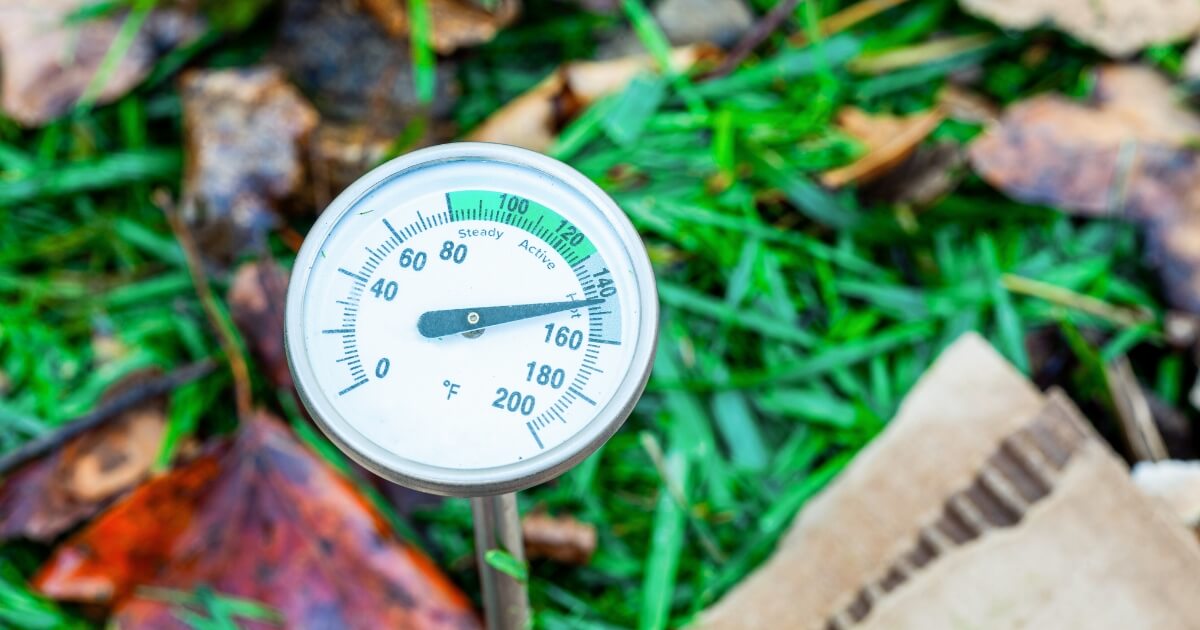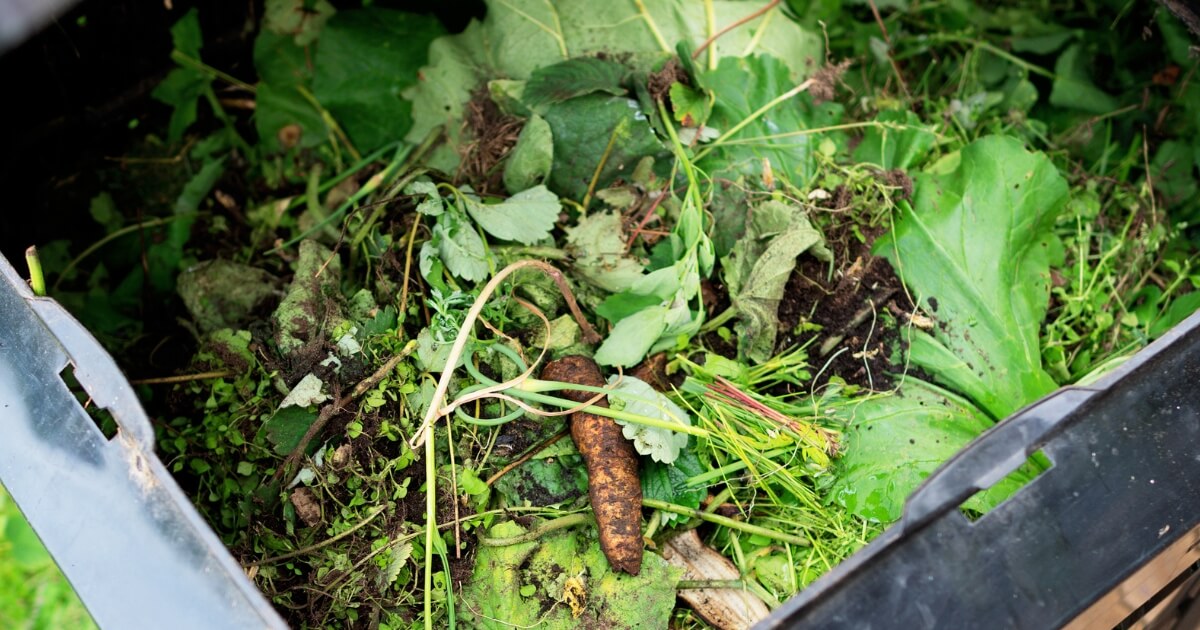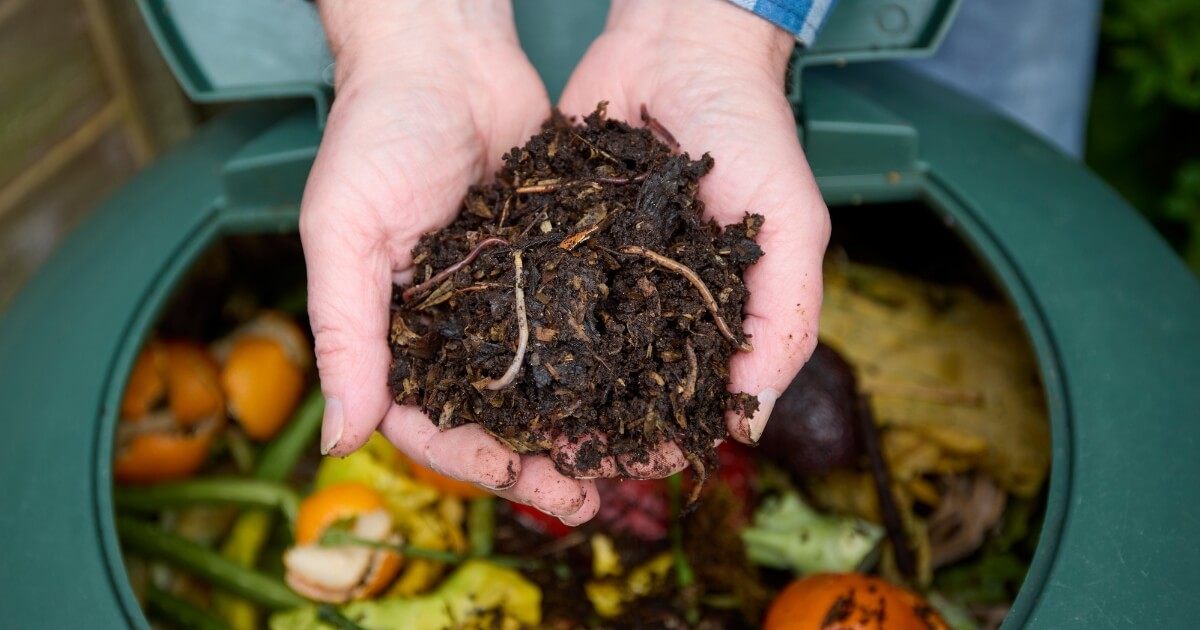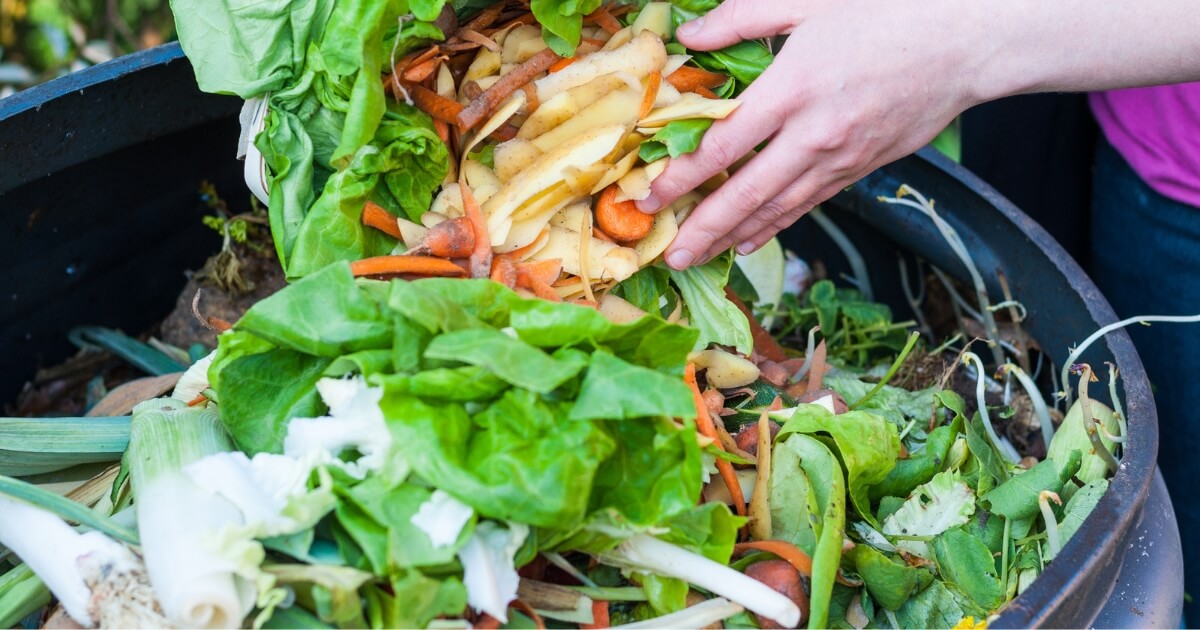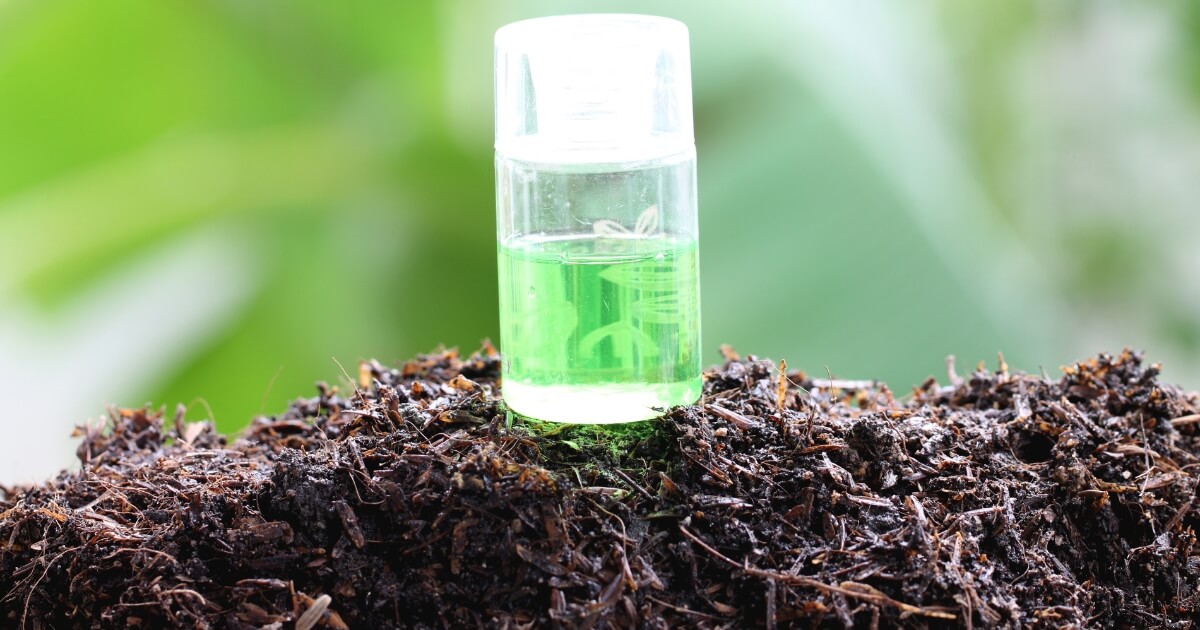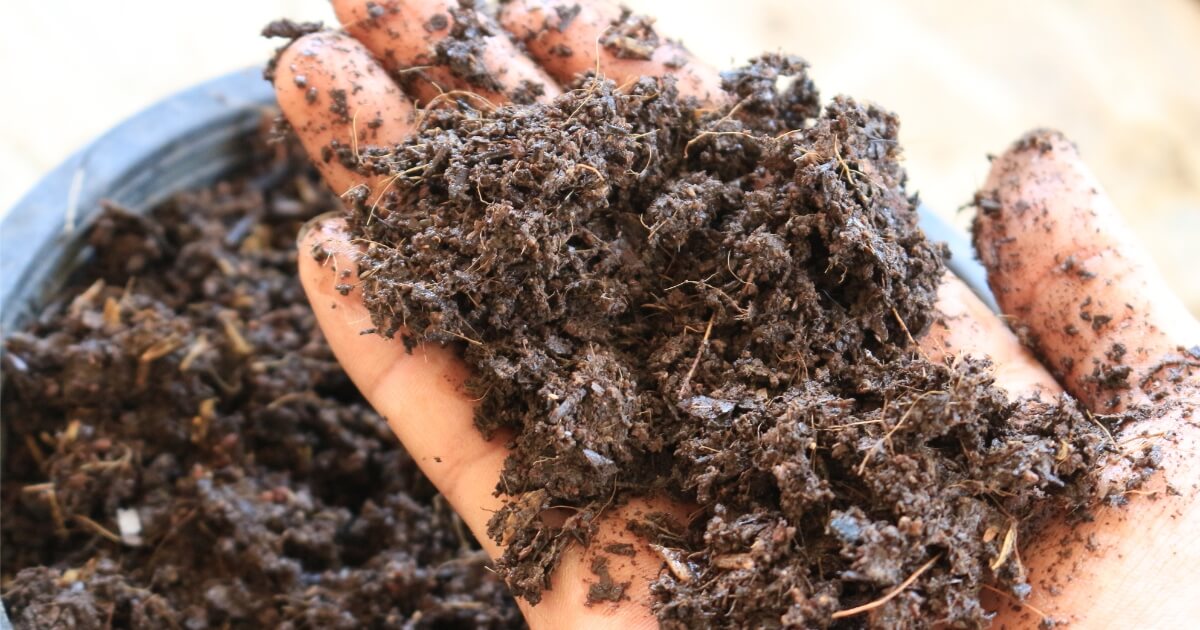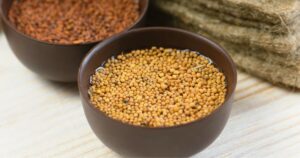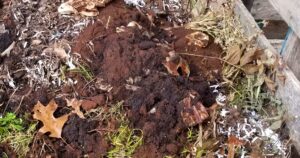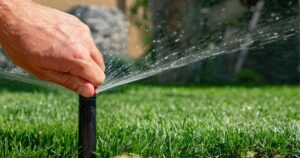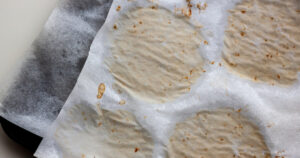Pine trees drop needles all year long, but are they good for composting?
Homeowners with pine trees know the mess they make, and luckily, yes, you can compost pine needles when you follow a few rules.
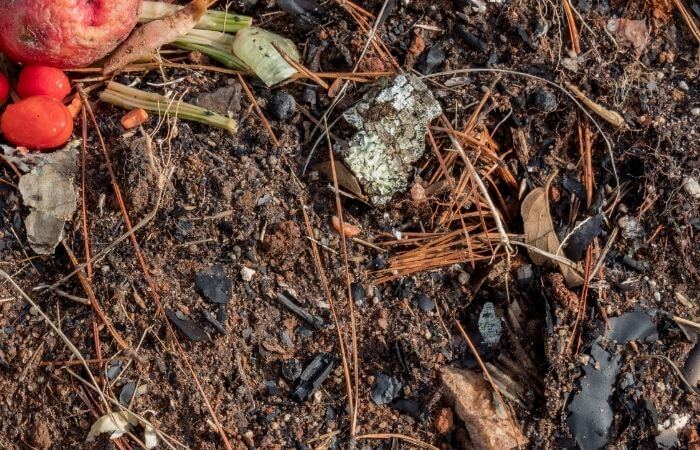
To learn all the info you need to know about composting pine needles, including the pros and cons, plus steps to doing it right, read this short guide.
When you compost instead of bagging pine needles, you help lessen the local landfill load and recycle the nuisance yard waste into a rich garden additive!
Do Pine Needles Make Good Compost?
Pine needles can make a fantastic compost as long as the other ingredients provide the nutrients, as pine needles offer very little.
The myth that pine needles make compost too acidic is not valid, with several studies showing that during the decomposition process, the high acidity of fresh needles drops to neutral levels of around 6.5 pH.
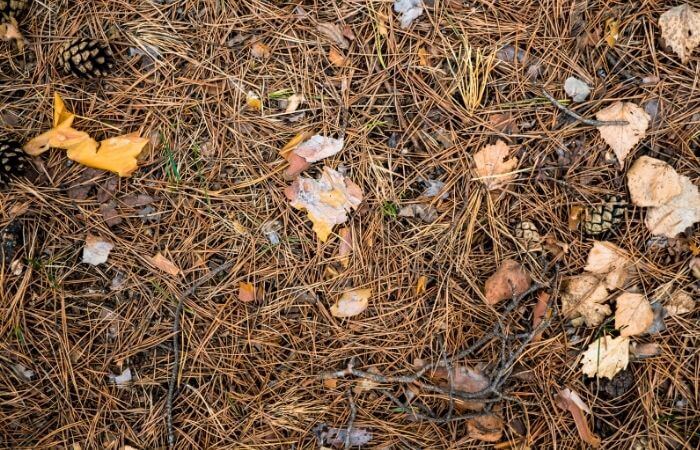
As most gardeners use already fallen and dried pine needles for composting material, the natural acidity is already lower before you start. If you still worry that your compost will be too acidic, affordable pH testers are available for home and garden use.
There are methods, which I detail below, that increase the speed of breaking down the thick, sap-like coating on pine needles. These pre-treatments mean the time it takes to finish off a compost full of pine needles won’t take any longer than a “normal” pile.
Pros Of Composting Pine Needles
There are many benefits to composting pine needles that include:
- Readily available as a free ingredient
- Is an excellent high carbon ingredient
- Will not adversely affect compost pH
- Lightweight and easy to work with
- Keeps yard waste out of the landfill
- Keeps compost aerated which increases heat and decomposition
- Wicks and holds moisture to keep compost pile from getting soggy
Cons Of Composting Pine Needles
The cons of using pine needles in compost are:
- Takes a long time to break down naturally
- Fresh needles are acidic and can slow down composting microbes
- Requires extra work before adding it to the compost if you want faster results
- You typically have more needles than you can add to the compost at any given time
- Adds few nutrients to the compost
How Long Does It Take For Pine Needles To Decompose?
Pine needles need longer to decompose because they have a natural resinous coating that must first wear off. Depending on your region and annual rainfall, pine needles can take up to two years to break down independently.
In a compost pile, the process will occur faster, primarily if you use a hot composting method. In a hot compost pile, pine needles should become unrecognizable in about 8-10 weeks.
In a cold compost pile, the pine needles may need six months or so to decompose with regular turning with a garden fork. Because of this, many homeowners with lots of pine trees opt to create separate pine needle compost piles that they ignore for a year or so, then push aside to harvest whatever material appears finished underneath.
Some choose to add this material to their active composting system or use it as a direct soil amendment in the garden.
When you add green pine needles to compost, it takes about three weeks for the outer layers to break down, leaving behind the tougher, more fibrous inner pine straw. The straw contains pure carbon, which means you may need to add more “green” compost ingredients to keep the pile working efficiently.
How To Compost Pine Needles
Consider pine needles as a brown or carbon compost ingredient. Many experts recommend pine needles to be around 1/10th of your total carbon ingredients, so the completed compost isn’t lacking as many nutrients.
The best way to compost pine needles is to follow these steps:
Step 1 – Chop The Needles
To give the pine needles a jump-start on decomposition and lower your pile’s size, you should chop the long needles before mixing them into the compost.
The simple way to accomplish this is to dump the pine needles in an open area of your lawn, rake them out, and run over them with your lawnmower. If the pieces are still too large, rake them out again and repeat. A small yard chipper will also work.
Step 2 – Soak The Needles (Optional)
If your pine needles are very dry, consider giving them an overnight soak in a large trash can. Moist pine needles will break down faster within the compost, as it encourages the fungi and beneficial bacteria to keep working.
Dump the needles into a bucket or trash can and hose them down and let sit for 24 hours or so. Dump them out on the ground near your composter to drain off the excess water.
Step 3 – Go Hot
Pine needles are tough, even after you pre-treat them, so hot composting works better to break them down.
If you like your compost to finish faster, always mix your pine needles with a batch of “hot” green ingredients such as:
- Grains or moldy bread
- Chicken manure
- Blood meal
- Coffee grounds
- Fresh grass clippings
These high-nitrogen ingredients give composting microbes all the energy they need to get to work breaking down the tough fibers within the pine needles.
Step 4 – Add To Compost
Add in a portion of pine needles to your compost bin, compost tumbler, or outdoor pile. Balance the brown to green ingredient ratio depending on how wet or dry your current compost appears.
Step 5 – Turn The Compost
Turning the compost every two to five days is best when trying to break down pine needles. The turning action brings oxygen into the pile to ramp up the heat, brings fresh material into the center for the microbes to digest, and distributes moisture so your compost won’t get slimy.
A quality compost thermometer allows you to monitor the internal temperature so you can maintain the 130-degree Fahrenheit temperature necessary to decompose the needles fast.
Gardening tip: For homeowners with more pine needles than you can compost efficiently, consider using them as mulch in your planters or around trees. A thick layer of four or five inches will reduce weed growth, help maintain soil moisture, and when packed down, not only looks good but won’t blow away.
Pine needles are a prevalent mulching material (even sold at garden centers for this purpose) in the southern US, as pine trees grow in abundance in this region.
In Summary
I hope the information in this article dispels any worries you have about the safety of composting pine needles.
Transforming piles of pine needles into something useful that helps beautify your home and garden is the best way to recycle and help the environment!
